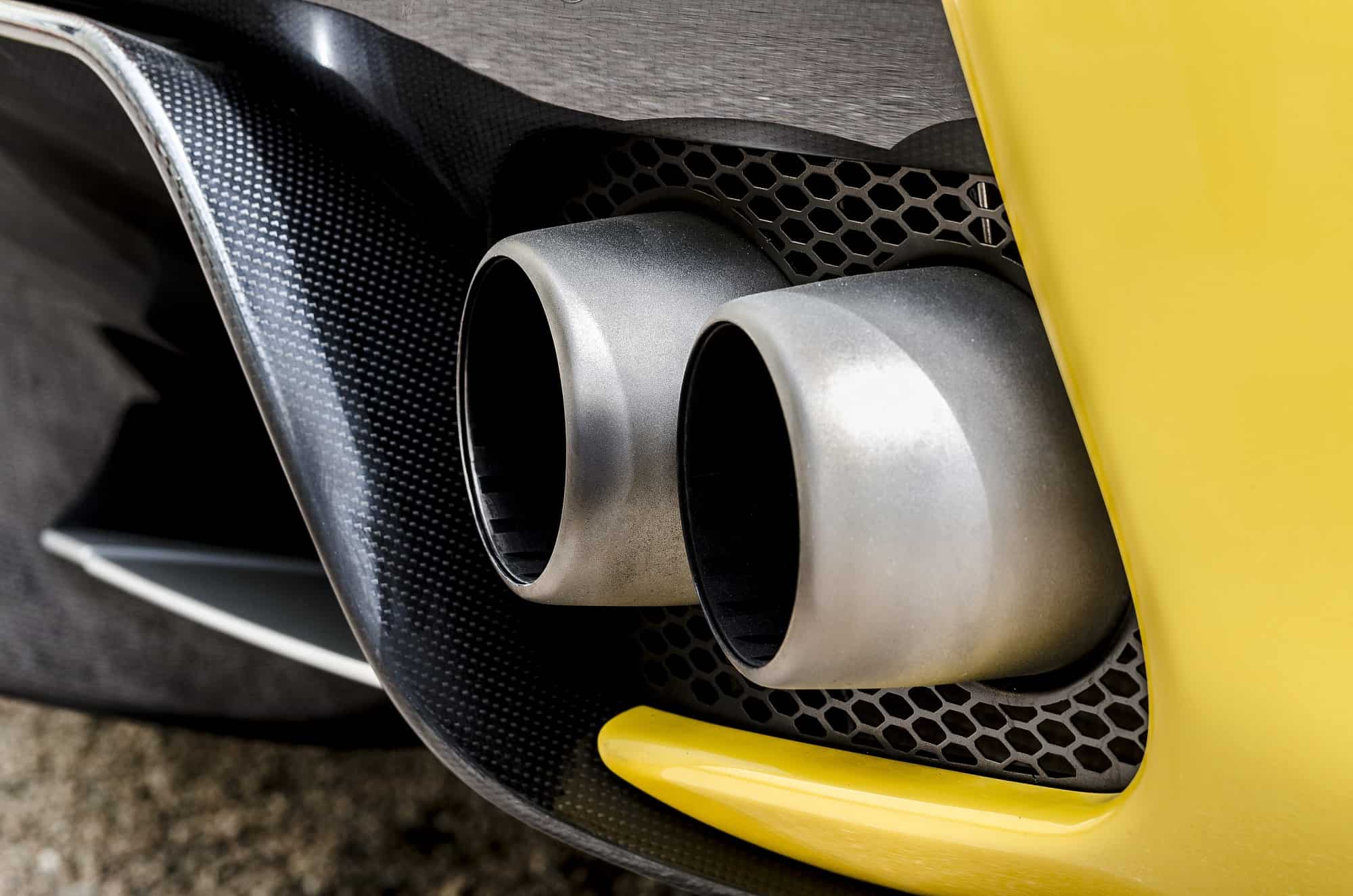The auto emissions levels in the Dallas-Fort Worth area have double since 1990. This isn't surprising when you consider the boom in population the area has experienced in recent years.
This 133% rise means that there are significantly more carbon dioxide emissions in the air. But this is assuming that all cars are running correctly. The emissions can get worse when you add in vehicles that have faulty emissions.
You can use this guide to check your exhaust smoke and ensure your car is in working order.
What Your Exhaust Should Look Like
If your car is maintained correctly, then you shouldn't see the exhaust. A normally operating car will have colorless gasses from the back of your vehicle.
Important Note
The following colors and possible problems are focused on gasoline engines. If you have a diesel or alternative fuel vehicle, then these colors and possible causes may not directly apply to your car. For example, diesel engines commonly emit a puff of black smoke upon startup.
Pay Attention to When You See the Smoke
You may see the strange colored smoke coming out of the back of your car when you accelerate down the road. Or it could come out when you walk around the vehicle as it sits stationary. When the smoke occurs can indicate where the problem lies.
Black
Black smoke from the exhaust is not only gross, but it goes against the emissions laws that the state of Texas has in place. The most common reason for billowing black clouds of smoke is that your vehicle is using too much gasoline in the combustion chamber.
A simple cause is that your air filter is clogged. Not enough air can get to the chamber, and so there's too much gasoline. This lowers the overall fuel efficiency of your car and causes it to "run rich".
A good sign that this is the problem is if the black smoke gets heavier when you hit the gas. This is because the engine works harder to increase your speed, so more fuel is used.
More complicated causes could be a blocked manifold or a malfunctioning fuel injection system. If you see black smoke coming from the exhaust, it's best to bring it into an engine repair shop and let the experts diagnose the problem.
White
When you see white smoke from the exhaust, you need to do a little further investigation. Pay attention to the consistency of the smoke to determine the problem. One type of white smoke is nothing to worry about, while another is a sign of a severe problem.
Light or Thin
This type of exhaust is entirely normal and nothing to worry about. The thin white exhaust is usually a sign of water vapor in the system. It's common to see this exhaust smoke when you first start your car on cooler to cold days.
Thick and Heavy
If the smoke from the exhaust is white, thick, heavy, and continual, then you have a bigger problem. It's most likely a leaking head gasket.
It could be from the coolant in the system leaking into the combustion chamber and getting burned up. Another possible cause is a cracked block or cylinder head. If you continue to drive with either of these problems, then you risk creating extensive damage that will be expensive to repair.
Bluish
If the smoke coming from your exhaust has a bluish tinge to it, then this is a sign that oil is leaking within the engine. Because engines operate at higher temperatures, the escaped oil gets burned up.
A short term solution is to add more oil. This will prevent all of the oil from getting burned up and causing serious damage to your engine.
The smarter long term solution is to bring your car in to a mechanic for engine repair. The mechanic will look for worn or damaged seals and signs of leaks. If the problem is a leaky valve seal or a stuck PCV valve, then the repair is relatively simple.
If the repair is a worn-out cylinder or piston, then you probably have engine failure. These issues will be a lot harder to repair.
Grey
When you see grey smoke, the diagnosis can be a bit tricky. Are you sure it's grey, or is it a shade of blue, white, or black smoke? Grey is a common sign of leaking oil.
If your vehicle has a turbo, grey smoke is a sign that there's something wrong with it. Another cause could be a faulty PCV valve. This is the Positive Crankcase Ventilation. This device performs emissions control by drawing out the unburnt fuel from the bottom of the engine and bringing it back up to the top.
A third possible cause is for automatic transmission vehicles. The grey smoke could be a sign that your transmission fluid is leaking from the gearbox and into the engine. If this is the case, it will be an expensive repair.
Ignoring the problem will result in your replacing the entire drivetrain.
Take a Look at Your Exhaust Smoke
It's easy to forget about your car exhaust. It's hidden back there at the tail end of your vehicle. But it's essential to pay attention to this expelled gas because exhaust smoke can signal a problem with the operation of your engine.
If you see colored exhaust coming from your muffler, then it's time to bring it in for diagnosis and repair. Ignoring the problem will result in expensive repairs.
Request an appointment today and let us diagnose and repair the strange colored smoke coming from your exhaust system.
In a car that's fully functioning properly, exhaust smoke shouldn't be visible. If it is showing any of these signs, find out what it's trying to tell you.
The auto emissions levels in the Dallas-Fort Worth area have double since 1990. This isn't surprising when you consider the boom in population the area has experienced in recent years.
This 133% rise means that there are significantly more carbon dioxide emissions in the air. But this is assuming that all cars are running correctly. The emissions can get worse when you add in vehicles that have faulty emissions.
You can use this guide to check your exhaust smoke and ensure your car is in working order.
What Your Exhaust Should Look Like
If your car is maintained correctly, then you shouldn't see the exhaust. A normally operating car will have colorless gasses from the back of your vehicle.
Important Note
The following colors and possible problems are focused on gasoline engines. If you have a diesel or alternative fuel vehicle, then these colors and possible causes may not directly apply to your car. For example, diesel engines commonly emit a puff of black smoke upon startup.
Pay Attention to When You See the Smoke
You may see the strange colored smoke coming out of the back of your car when you accelerate down the road. Or it could come out when you walk around the vehicle as it sits stationary. When the smoke occurs can indicate where the problem lies.
Black
Black smoke from the exhaust is not only gross, but it goes against the emissions laws that the state of Texas has in place. The most common reason for billowing black clouds of smoke is that your vehicle is using too much gasoline in the combustion chamber.
A simple cause is that your air filter is clogged. Not enough air can get to the chamber, and so there's too much gasoline. This lowers the overall fuel efficiency of your car and causes it to "run rich".
A good sign that this is the problem is if the black smoke gets heavier when you hit the gas. This is because the engine works harder to increase your speed, so more fuel is used.
More complicated causes could be a blocked manifold or a malfunctioning fuel injection system. If you see black smoke coming from the exhaust, it's best to bring it into an engine repair shop and let the experts diagnose the problem.
White
When you see white smoke from the exhaust, you need to do a little further investigation. Pay attention to the consistency of the smoke to determine the problem. One type of white smoke is nothing to worry about, while another is a sign of a severe problem.
Light or Thin
This type of exhaust is entirely normal and nothing to worry about. The thin white exhaust is usually a sign of water vapor in the system. It's common to see this exhaust smoke when you first start your car on cooler to cold days.
Thick and Heavy
If the smoke from the exhaust is white, thick, heavy, and continual, then you have a bigger problem. It's most likely a leaking head gasket.
It could be from the coolant in the system leaking into the combustion chamber and getting burned up. Another possible cause is a cracked block or cylinder head. If you continue to drive with either of these problems, then you risk creating extensive damage that will be expensive to repair.
Bluish
If the smoke coming from your exhaust has a bluish tinge to it, then this is a sign that oil is leaking within the engine. Because engines operate at higher temperatures, the escaped oil gets burned up.
A short term solution is to add more oil. This will prevent all of the oil from getting burned up and causing serious damage to your engine.
The smarter long term solution is to bring your car in to a mechanic for engine repair. The mechanic will look for worn or damaged seals and signs of leaks. If the problem is a leaky valve seal or a stuck PCV valve, then the repair is relatively simple.
If the repair is a worn-out cylinder or piston, then you probably have engine failure. These issues will be a lot harder to repair.
Grey
When you see grey smoke, the diagnosis can be a bit tricky. Are you sure it's grey, or is it a shade of blue, white, or black smoke? Grey is a common sign of leaking oil.
If your vehicle has a turbo, grey smoke is a sign that there's something wrong with it. Another cause could be a faulty PCV valve. This is the Positive Crankcase Ventilation. This device performs emissions control by drawing out the unburnt fuel from the bottom of the engine and bringing it back up to the top.
A third possible cause is for automatic transmission vehicles. The grey smoke could be a sign that your transmission fluid is leaking from the gearbox and into the engine. If this is the case, it will be an expensive repair.
Ignoring the problem will result in your replacing the entire drivetrain.
Take a Look at Your Exhaust Smoke
It's easy to forget about your car exhaust. It's hidden back there at the tail end of your vehicle. But it's essential to pay attention to this expelled gas because exhaust smoke can signal a problem with the operation of your engine.
If you see colored exhaust coming from your muffler, then it's time to bring it in for diagnosis and repair. Ignoring the problem will result in expensive repairs.
Request an appointment today and let us diagnose and repair the strange colored smoke coming from your exhaust system.


